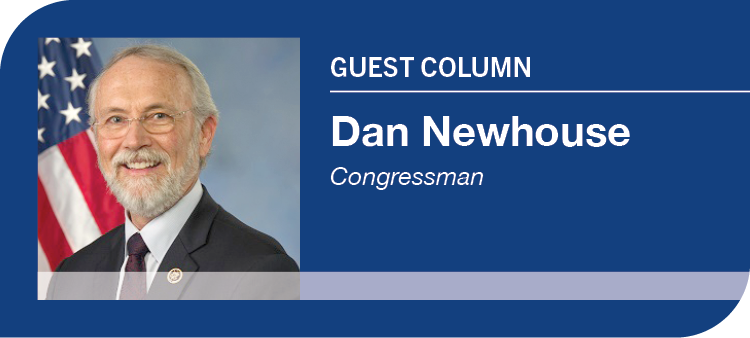
Home » We must put a stop to catastrophic wildfires
We must put a stop to catastrophic wildfires

August 12, 2021
This summer, with severe drought and hot temperatures throughout the West, the threat of wildfires is once again at the forefront of everyone’s minds. Tens of thousands of acres in Washington alone were burning in late July.
While the causes of wildfires can be unpredictable, there are ways to reduce the risks to rural communities, the environment, and the economy. It is imperative that we utilize every tool available to manage our public lands for the safety of our families, local businesses, and lands.
Our national forests are in desperate need of revitalization. Acres of dead trees and fallen branches serve as kindling, and the U.S. Forest Service hasn’t had the adequate resources to actively manage the lands in the off seasons. The high price of these fires – in lives and property – will continue until we make the necessary changes to prevent them from occurring.
In Central Washington and across the West, we know that healthy, resilient forests are key to withstanding the many natural disasters we face. Since coming to Congress, I have been working to pass legislation that empowers the federal government to actively manage and restore health to our public lands. While we have certainly made progress – by making commonsense reforms like ending the dangerous cycle of “fire borrowing” and allowing land managers to clear vegetation from electrical transmission rights of way – there is still a lot of work to be done. That’s why I introduced the Stop Catastrophes Act, a bill that aims to reduce our risk of wildfires and improve our national forests and federal lands by enhancing an important tool known as “categorical exclusions.”
Far too often, misguided special interest groups prevent innovative management from being implemented, resulting in poor forest health, and thereby increasing the threat of devastating wildfires. Active forest management, including actions authorized in my legislation, enables us to reduce hazardous fuels and is an important part of protecting our communities from disaster.
I have seen firsthand the lasting environmental and economic damage caused by these wildfires. Okanogan County communities are still recovering and working hard to rebuild from the Carlton Complex fire that raged through Central Washington seven years ago, and their workload continues to grow as fires ravage through mismanaged land in our district year after year.
I salute the brave efforts of firefighters, first responders, and residents who came together to support one another during the Carlton Complex Fire. However, it remains a sobering reminder that proactive solutions are needed to improve public land management and prevent, prepare for, and respond to wildfires. The health of public forests and the economy of rural communities depend on it.
While my legislation is an important next step in addressing the threat of wildfires in our communities, additional reforms to boost active forest management are still needed to increase the resiliency of our federal lands and forests. I am committed to working with my colleagues in the House and our local land management partners to improve our management efforts and prevent these catastrophic wildfires from occurring in the first place.
It’s simple, really, let’s prevent fires before they start.
U.S. Rep. Dan Newhouse, R-Sunnyside, represents Washington’s 4th Congressional District in the U.S. House of Representatives.
Opinion
KEYWORDS august 2021




